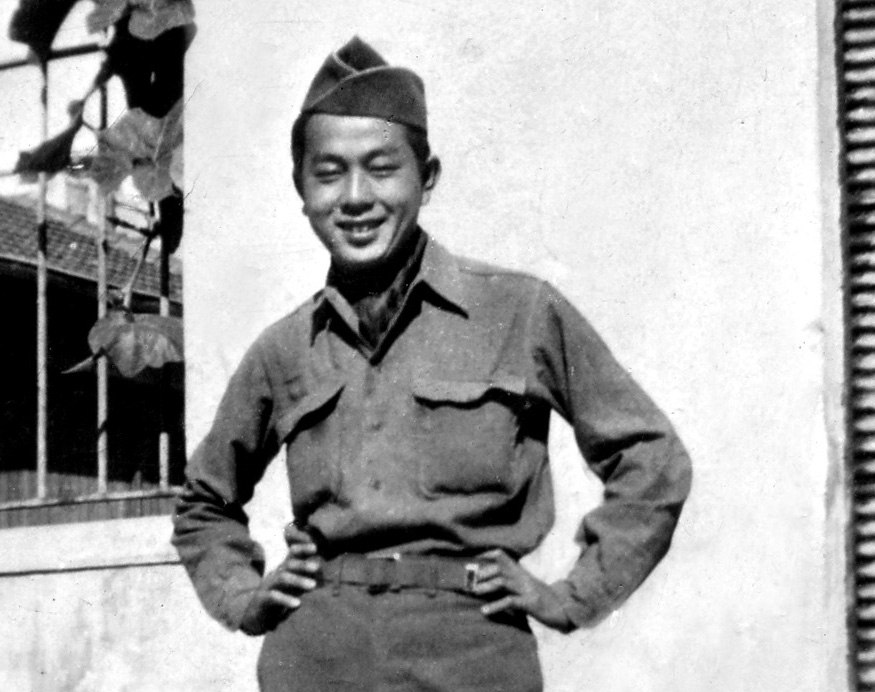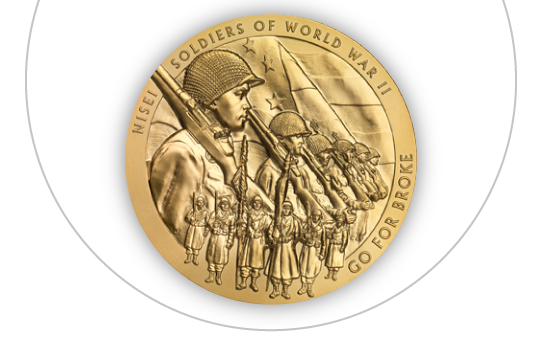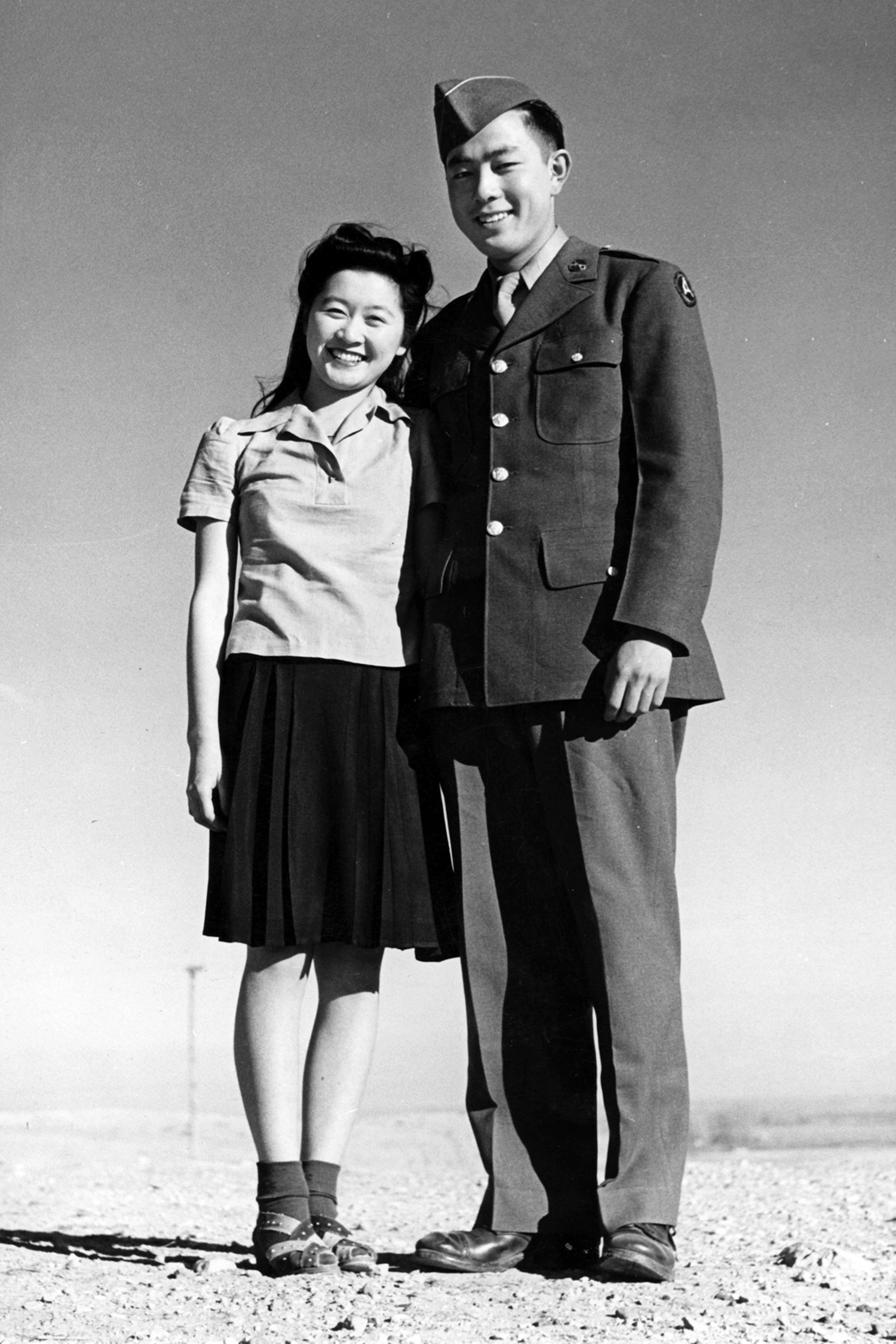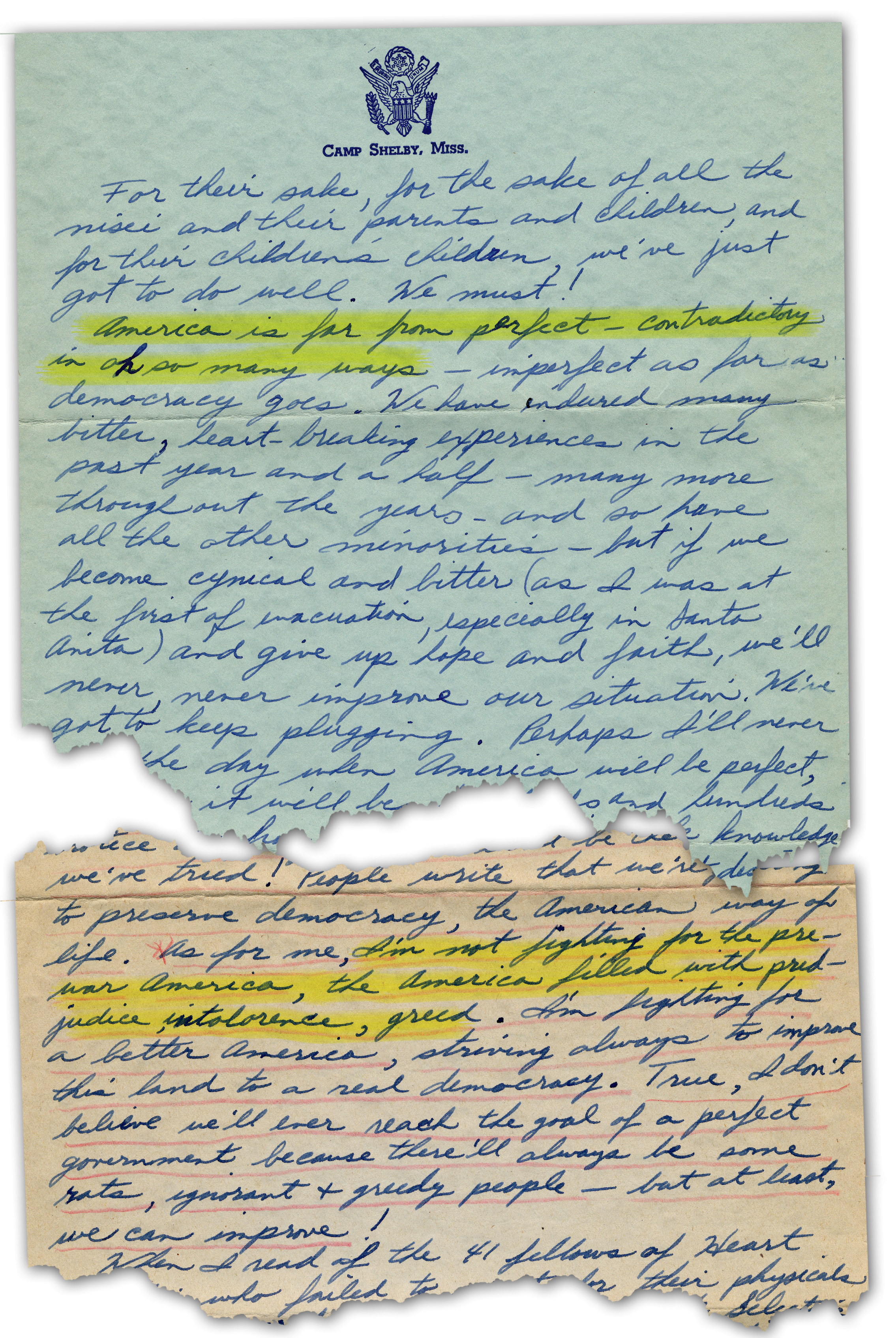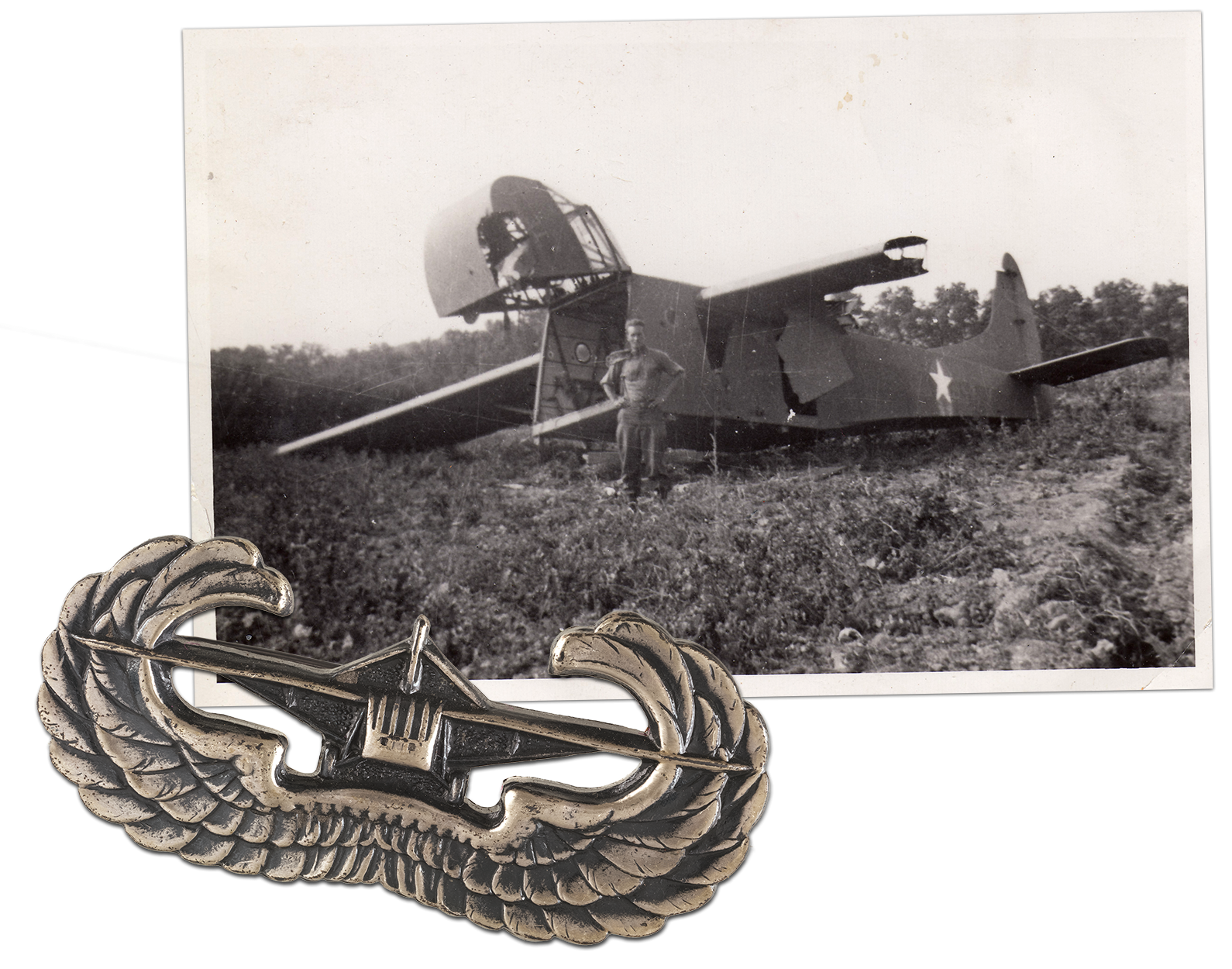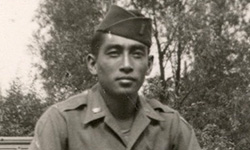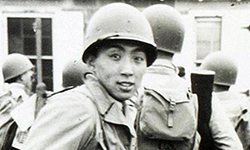Private First Class
Ted Teruo Fujioka
Anti-Tank Company
442nd Regimental Combat Team
1925 - 1944
- Citizenship
- Compassion
- Courage
- Sacrifice
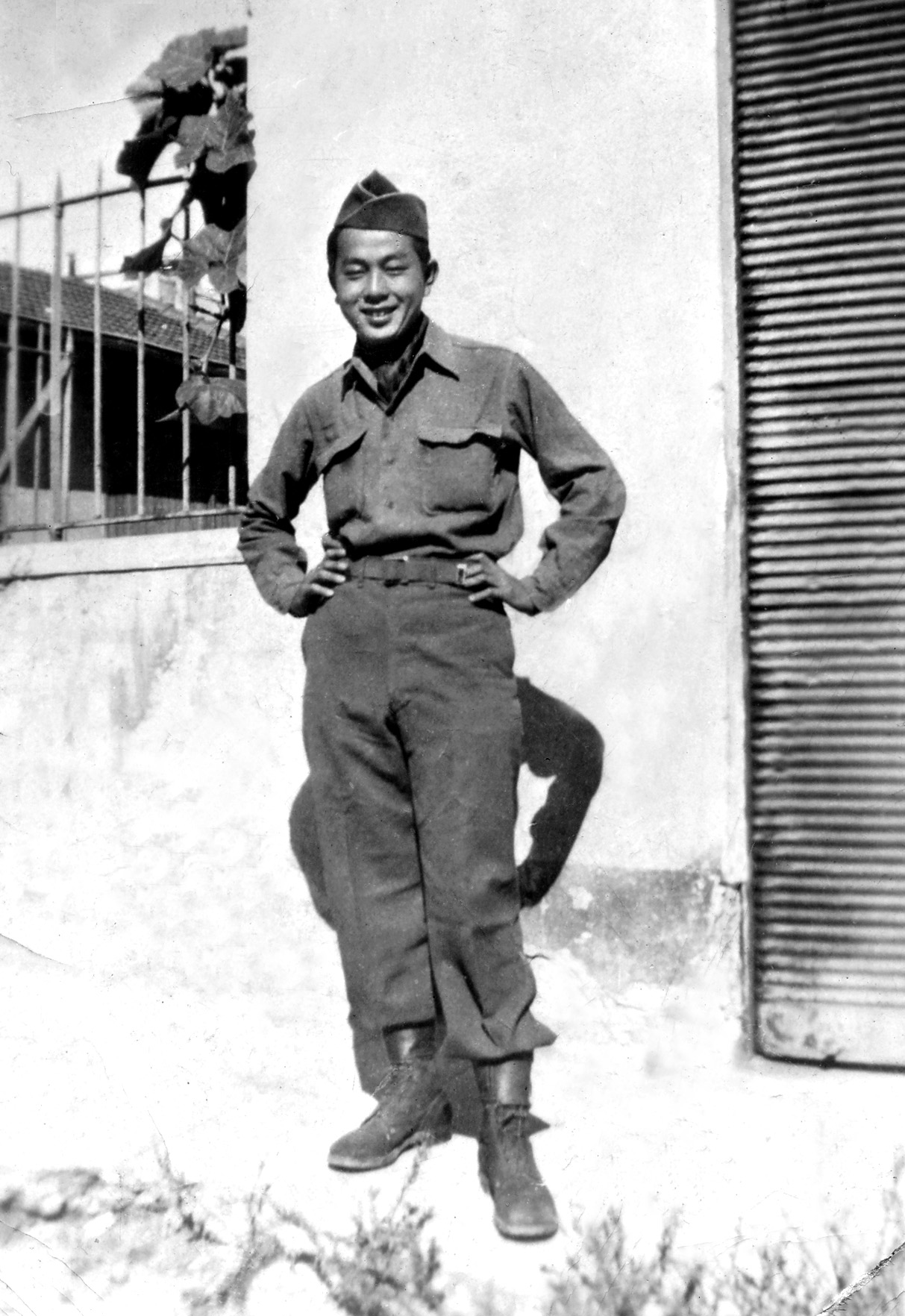
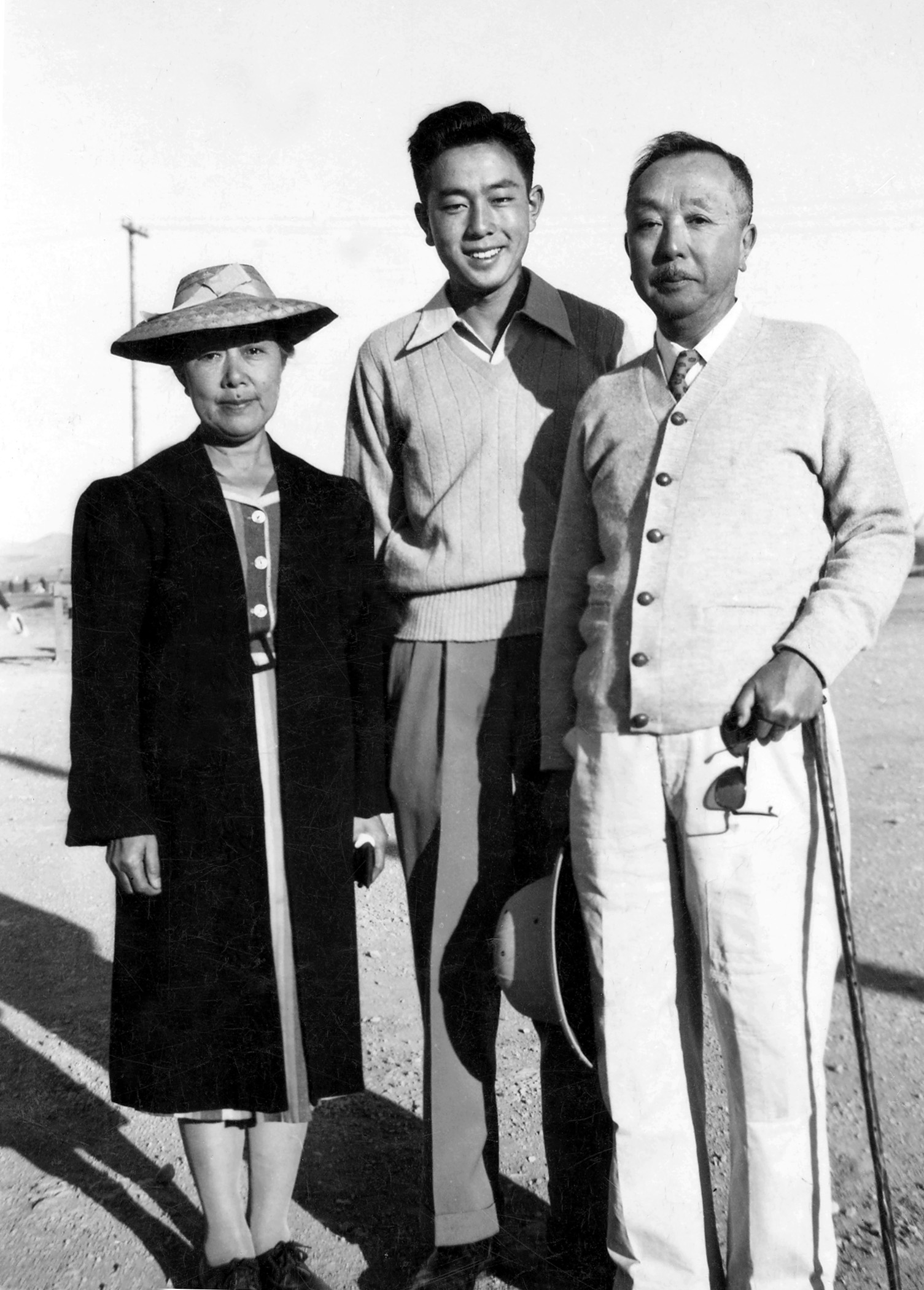
Ted and his parents
Ted was a natural-born leader with a passion for democracy in the world and his country, the US.
He was very close to his extended family and would later write letters addressed to “Dear Mama, Papa, + all.”
From Hollywood to Heart Mountain
Before Ted could graduate from Hollywood High School, he and his family were forcibly moved to Santa Anita race track, which had been turned into an assembly center for Japanese Americans in 1942.
From there, the Fujiokas were sent to Heart Mountain concentration camp in Wyoming. Ted was voted student body president and graduated from Heart Mountain High School as class valedictorian in 1943.
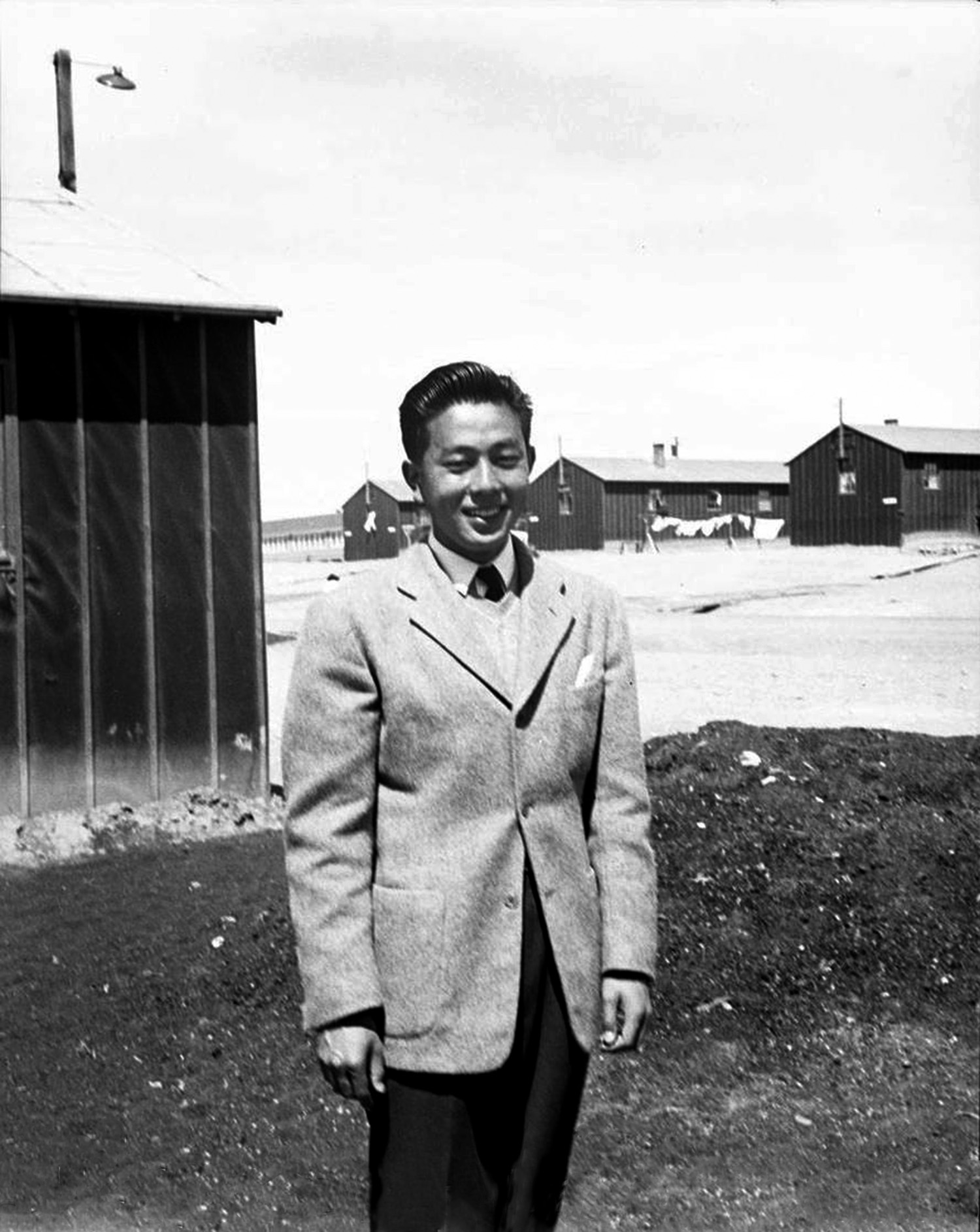
Ted graduated as class valedictorian
Three days after graduation and upon turning 18, Ted made a momentous decision. He enlisted in the US Army on June 14, 1943. He would leave behind his beloved family and his girlfriend, Janice, in Heart Mountain.
I volunteered for many reasons. ... Whatever I do for my country will benefit not only the Nisei, but all the minorities of America. |Ted Fujioka|in a letter to a former teacher at Hollywood High School, June 24, 1943
Conflict over Draft of Nisei
One of Ted’s role models was his brother-in-law Nobu Kawai, the associate editor for the Heart Mountain Sentinel newspaper. Nobu fully supported the Selective Service Act, the requirement that men 18 to 35 years of age—including Nisei—register for the draft.
Criticizing this stance was the Heart Mountain Fair Play Committee, which opposed the conscription of Nisei from behind barbed wire. Some Fair Play members were later sentenced to time in federal penitentiaries.
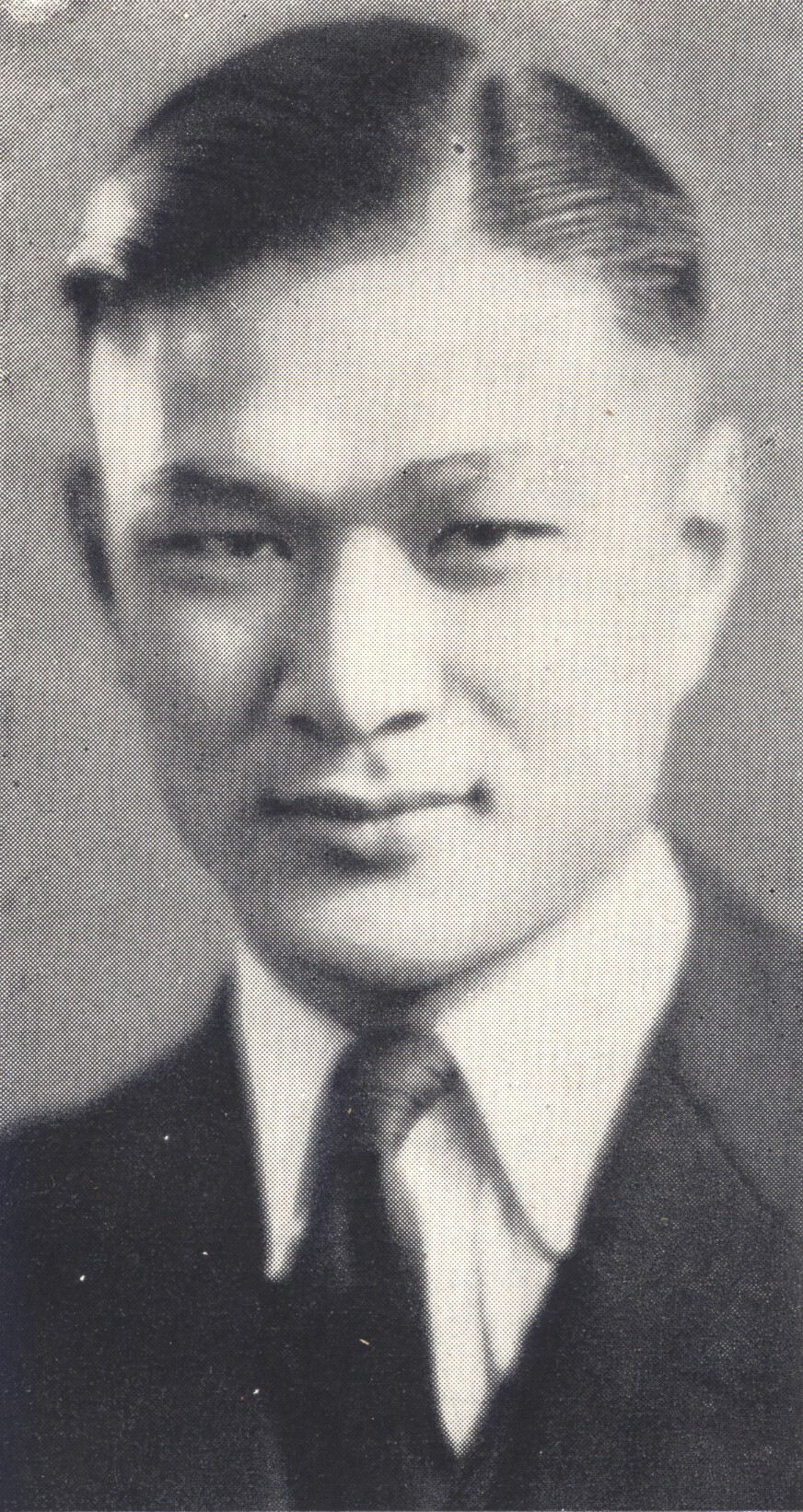
Nobu Kawai, Associate Editor of Heart Mountain Sentinel
We are on the side of Justice, Humanity and Fair Play, but above all, we are on the side from which emanates justice, freedom and liberty. The Constitution and Bill of Rights of the United States. |Frank Emi|Heart Mountain Fair Play Committee
The fact that our rights have been resisted does not justify us to resist induction. ... While we are fighting for our rights, let us consider ourselves as good citizens so that no one can deny our claims to such rights. |Nobu Kawai, Associate Editor|Heart Mountain Sentinel, April 1, 1944
Ted was a prolific writer, sending 40 letters from basic training in Mississippi and the war front in Europe to his family back home. Excerpts from his correspondence were even published in the Heart Mountain Sentinel. According to his sister Peggy, readers likened him to the famous war correspondent, Ernie Pyle.
See, Ted, in an indirect sort of way, you are doing an effective share towards ‘the cause’ in a far reaching way. … Some here even gone so far as to remark that your style of writing is similar to that of Ernie Pyle’s! Well, ’nuff said—just keep up the fine work, Ted! |Peggy Fujioka|October 23, 1944
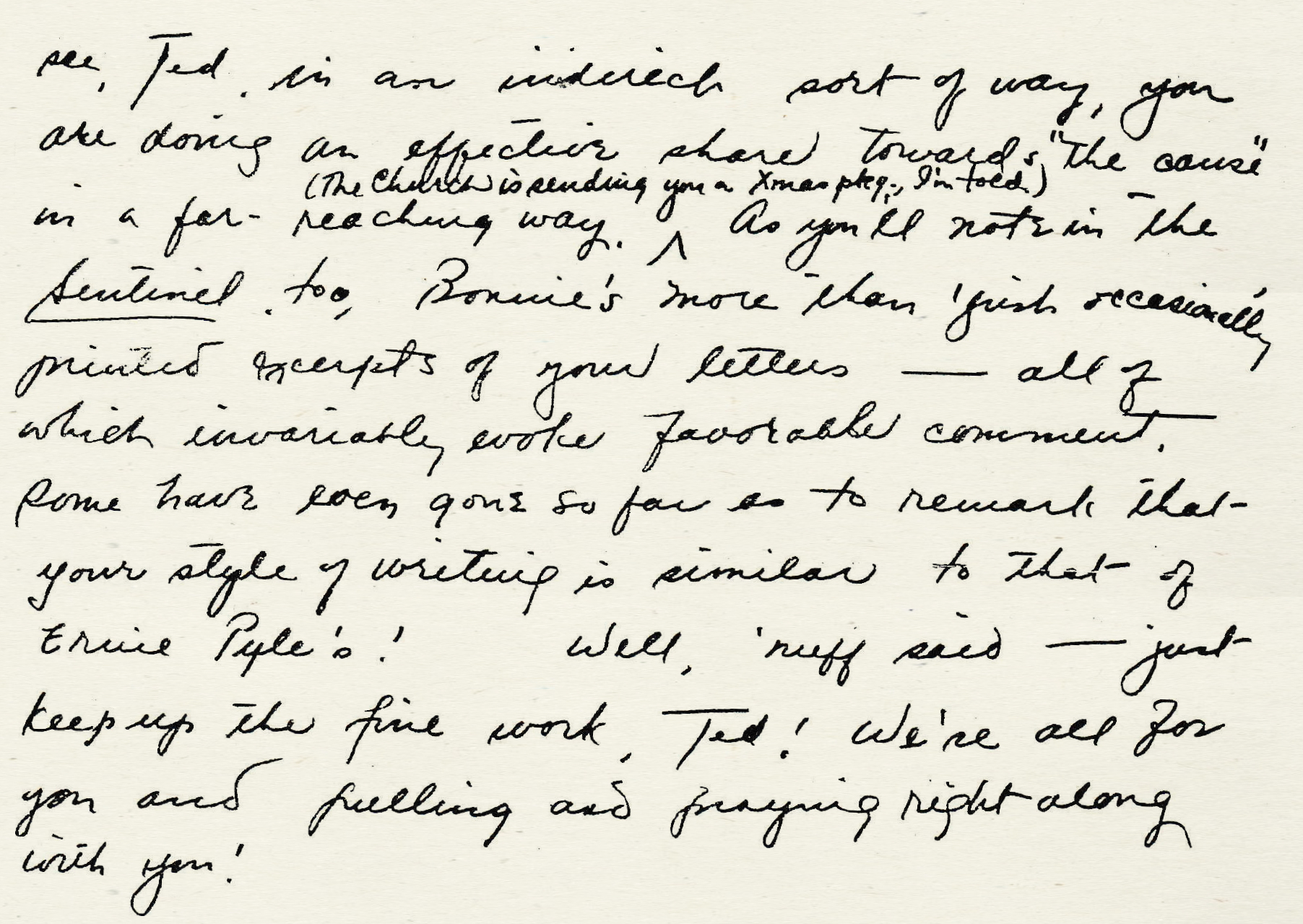
Letter to Ted from his sister, Peggy Fujioka
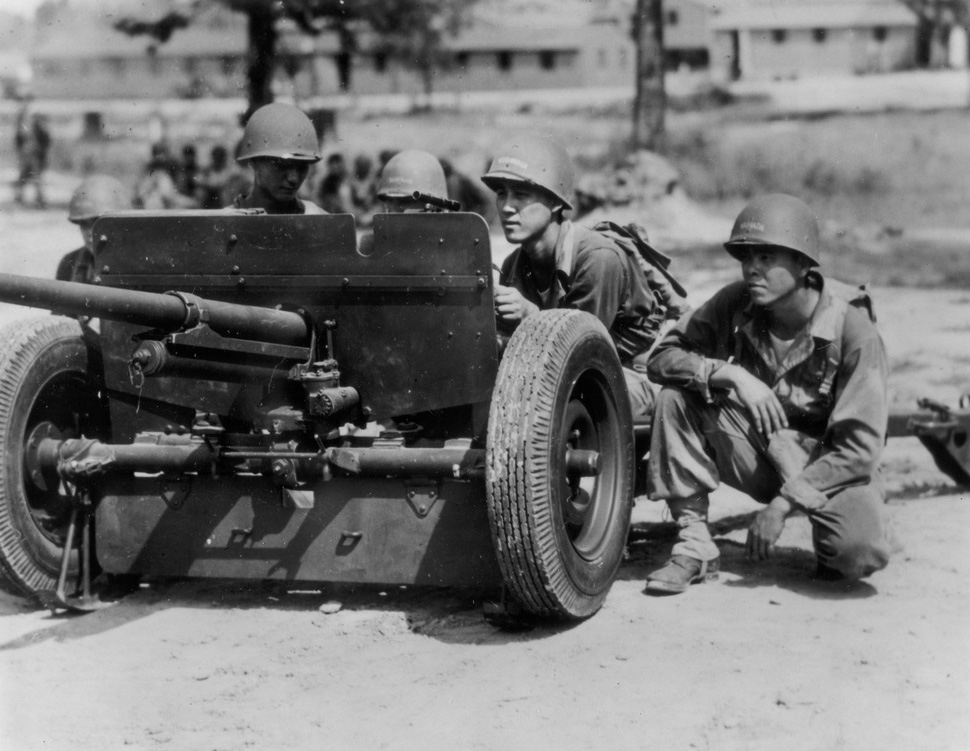
Anti-tank Company of the 442nd Regimental Combat Team
Basic Training in Mississippi
While at Camp Shelby, Ted was assigned to the Anti-Tank Company of the 442nd Regimental Combat Team. Instead of traveling by foot, this company would ride in jeeps transporting heavy anti-tank guns. In his letters, he gave advice to his younger brother, Babe, listed the reasons he joined the military, and shared love for his mother.
You know what, Mama? I think you’re the finest mother in this world and I think of you often. I remember how you used to sit by my bed when I was sick . . . place your cool hand on my feverish brow, or massaging my tired weak muscle. |November 14, 1943
Beyond expressing his affections, Ted’s letters contained deep explorations of what it meant to be an American in that complex time:
"America is far from perfect—contradictory in oh so many ways—imperfect as far as democracy goes. We have endured many bitter, heart-breaking experiences … and so have all other minorities—but if we become cynical and bitter … we’ll never never improve our situation. We’ve got to keep plugging." |October 24, 1943, Camp Shelby, MS
"I’m not fighting for the pre-war America, the America with prejudice, intolerance, greed. I’m fighting for a better America, striving always to improve this land to a real democracy." |April 15, 1944
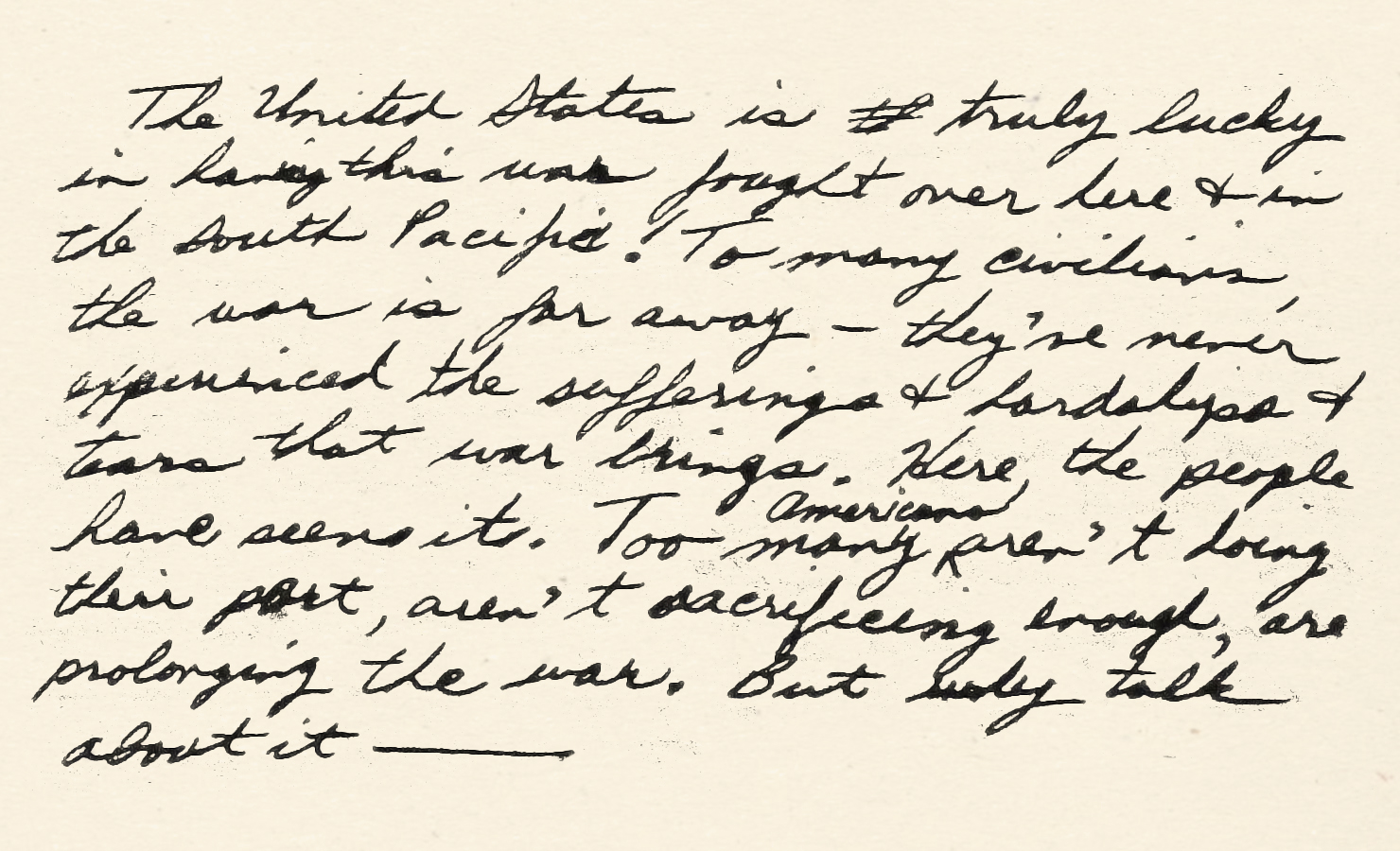
Ted’s Letter home, June 3, 1944
In May 1944 Ted and the Anti-Tank Company were on their way to Italy. Experiencing the war front for the first time, Ted encountered poverty and civilians’ fear of air attacks.
On June 6, 1944, Allied Forces invaded the beaches of Normandy, France. This began to change the course of World War II.
The United States is truly lucky in having this war fought over here & in the South Pacific. To many civilians, the war is far away—they’ve never experienced the sufferings & hardships & tears that war brings. Here, the people have seen it. |June 3, 1944, Italy
Glider Invasion
In July 1944, the Anti-Tank Company detached from the 442nd RCT and joined the 517th Parachute Infantry Regiment, a part of the First Airborne Task Force, in the Invasion of the South of France.
Ted and his company rode in gliders, large planes without motors that held several jeeps. Some gliders crashed and soldiers were injured.
Ted experienced a “rough, exciting, and rather frightening” landing into grape vineyards.
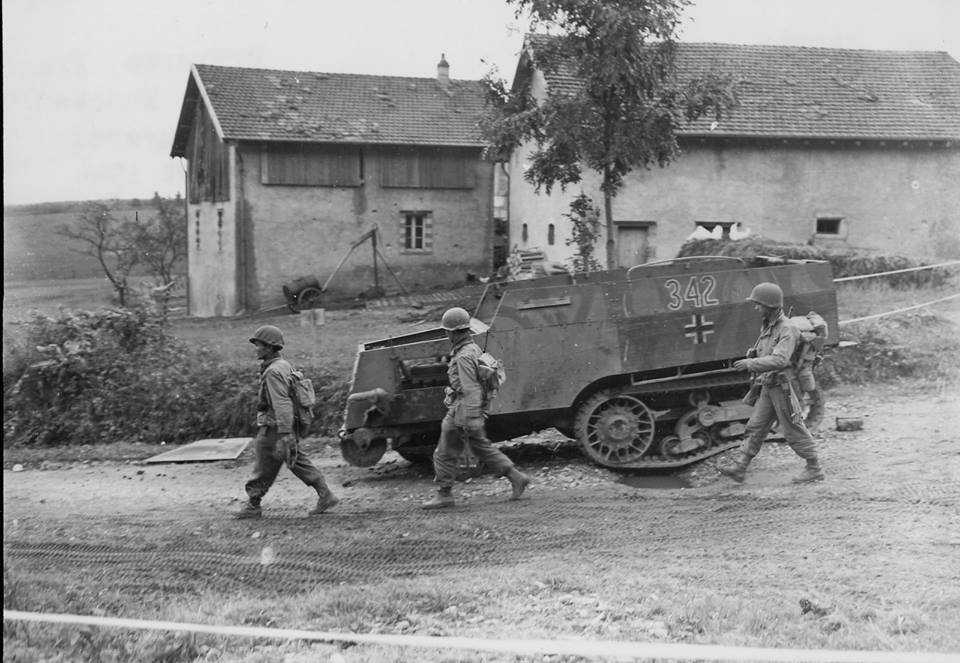
442nd soldiers in the town of Bruyères, France
As part of the company’s mission to rescue stranded paratroopers, Ted and his comrades walked through war-torn French villages. The villagers had never seen American troopers before and they clapped and cried with joy.
In spite of these moments of celebration, there were still battles to be fought.
In the muddy slopes of the Vosges Mountains in France, Ted imagined the pine trees covered in snow and the holly full of red berries for a white Christmas.
He wrote his family on November 5: "Even in this war zone, this place where men fight both the enemy and the weather, there [are] things of beauty and meaning, things that bring back fond memories of bygone days."
His father, who had last heard from Ted in October, wrote:
According to recent news from the front there are a great many casualties among Nisei Soldiers, so we are anxiously thinking of you and praying of your safety.|Shiro Fujioka| to his son, November 10, 1944
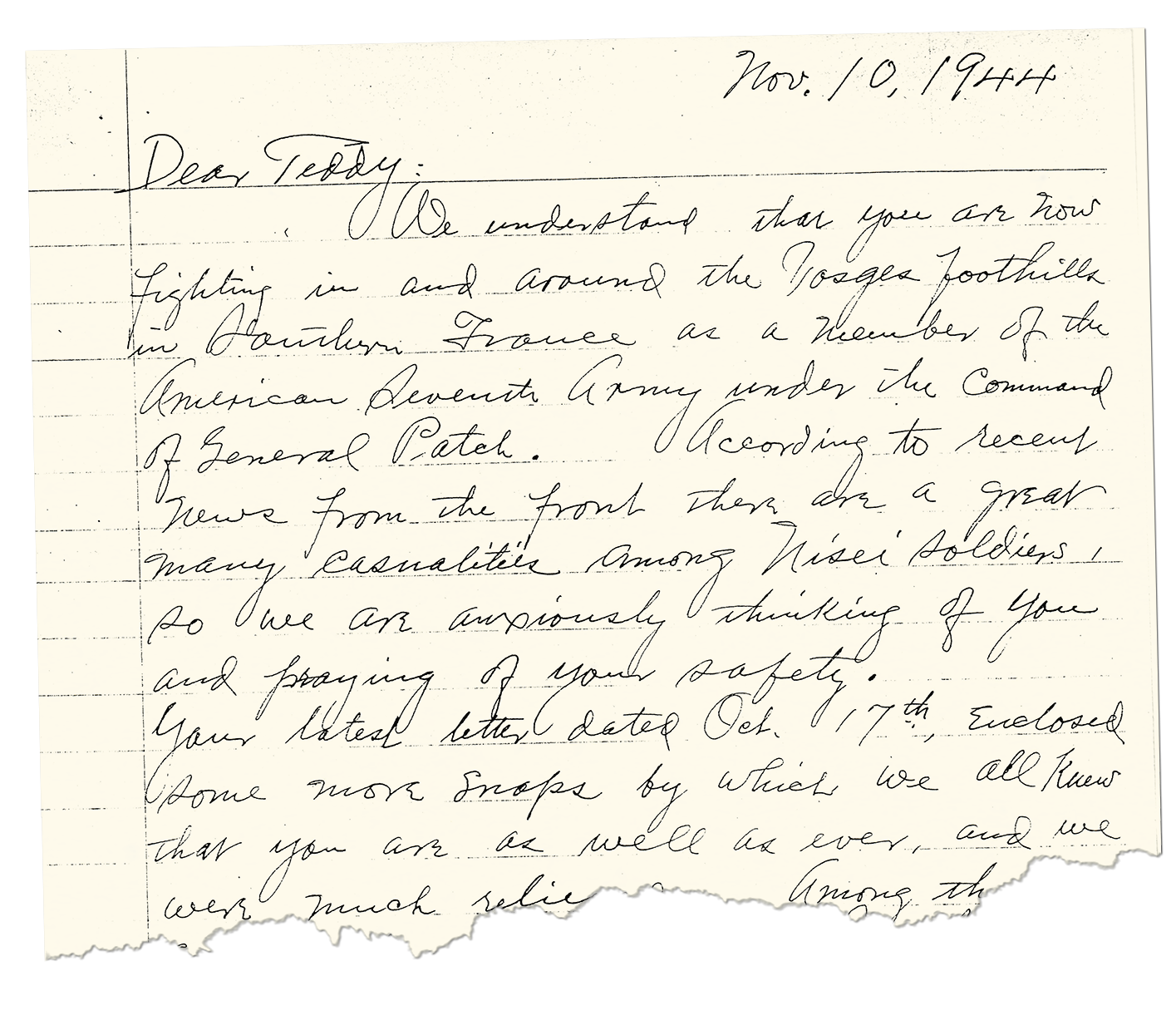
Letter to Ted from his father, November 10, 1944
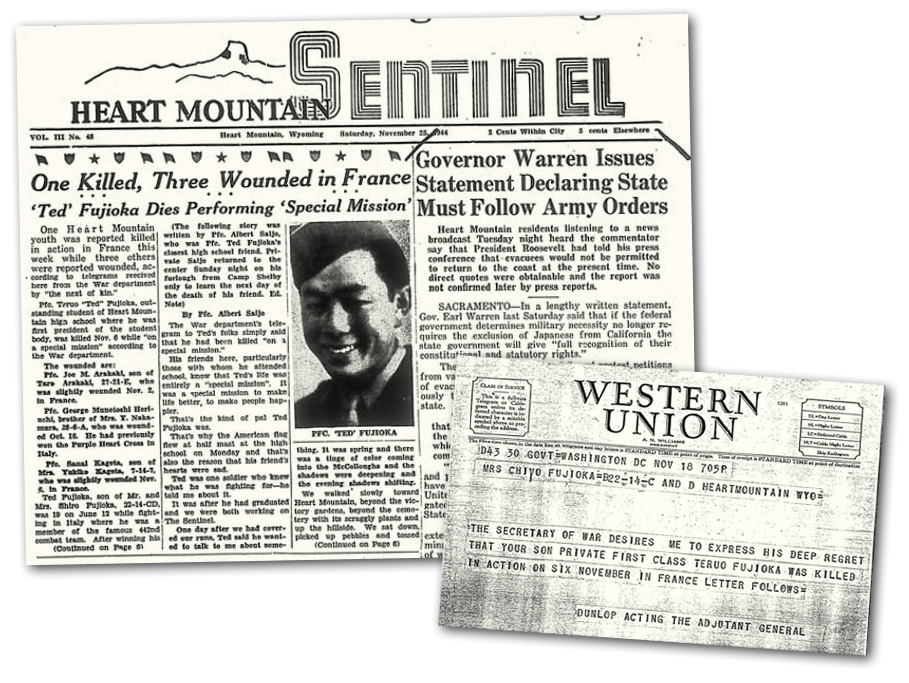
Heart Mountain Sentinel article and the telegram announcing Ted’s death
Ted never received his father’s letter. He was killed in action while on a special mission on November 6, 1944, in France.
His best friend at Heart Mountain, also a soldier, eulogized Ted in the Heart Mountain Sentinel, where they both worked. He wrote that Ted’s whole life was “a special mission to make life better, to make people happier.”
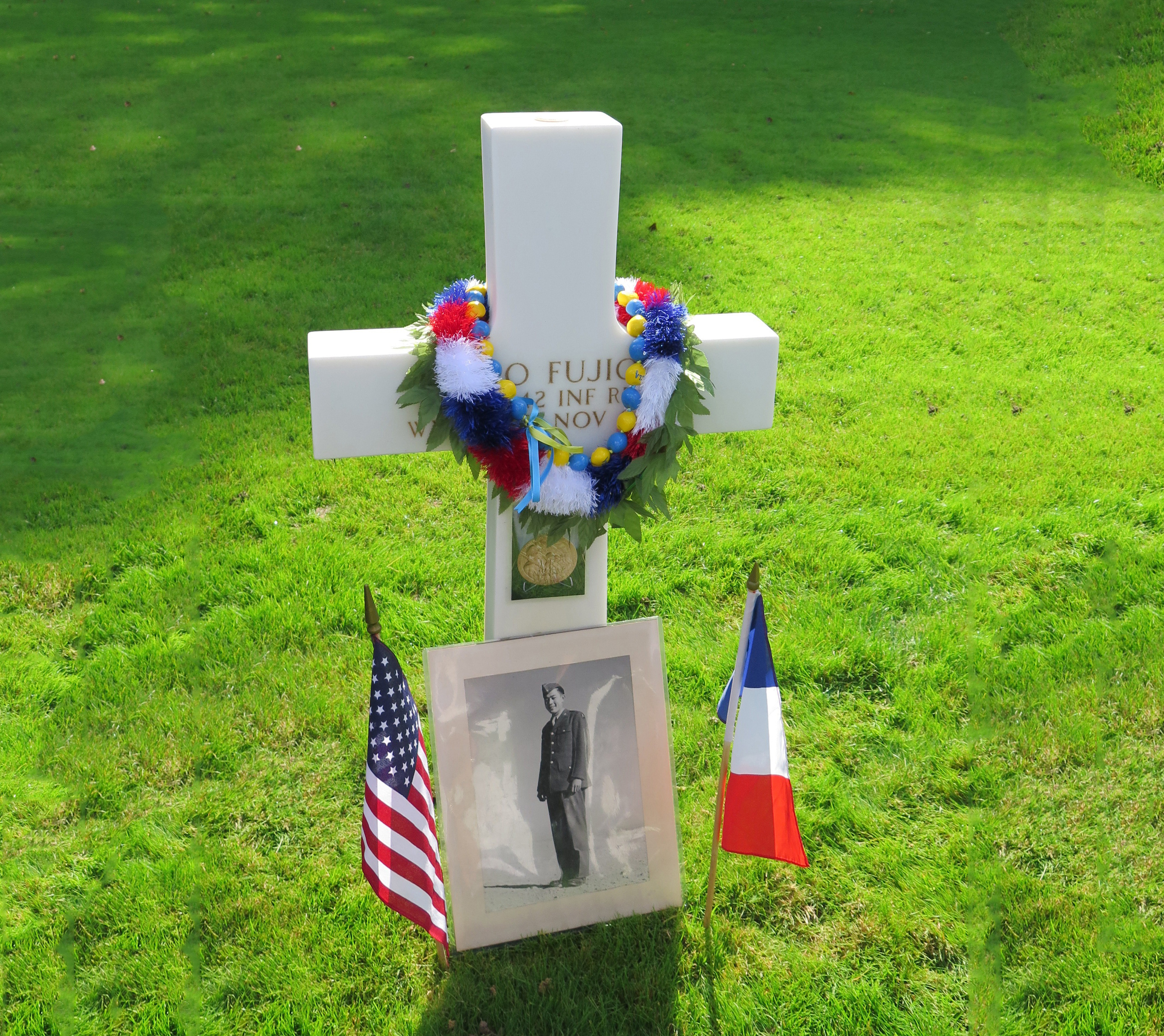
Recovered from Ted’s belongings were his pencil and pen, which he used to faithfully write his family, and share his deep thoughts.
He rests in peace in Epinal, France, where he sacrificed his life for democracy.
Perhaps I’ll never see the day when America will be perfect, perhaps it will be hundreds and hundreds of years from now, but just the knowledge of having done something towards that desired end will prove inner joy—a clear conscience. |Private First Class Ted Fujioka, October 24, 1943
Resources
To learn more about Ted Teruo Fujioka, visit Resources.
Credits
Letters courtesy of the Fujioka family. Photographs are courtesy of the Fujioka family, the George and Frank C. Hirahara Collection, Washington State University Libraries Manuscripts, Archives, and Special Collections, Dave Kawagoye family, Kawai family, Densho and Seattle Nisei Veterans Committee.
